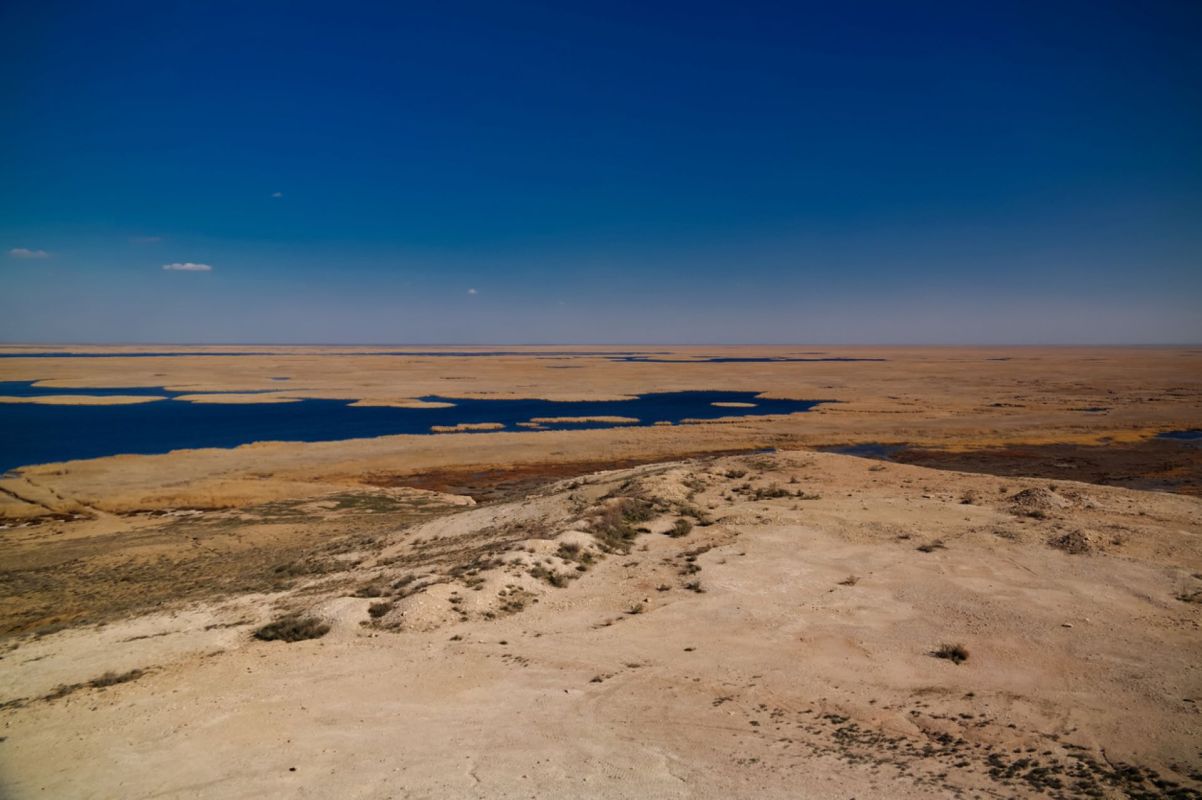Some things naturally get better with time, but satellite photos of one of the world's largest lakes have provided yet another warning that this isn't always the case.
These images, taken 18 years apart, reveal an unfortunately unrecognizable landscape.

What happened?
Nature published two photos of the Aral Sea that were taken in 2000 and 2018. Sadly, the most recent image resembles more desert than lake because of what the scientific journal called "excessive extraction of water for irrigation."
The "highly polluted" ground, which once housed the fourth-largest lake worldwide across the borders of Kazakhstan and Uzbekistan, now reportedly releases more than 110 million tons of dust and toxic chemicals annually.
Why is this concerning?
Data from the U.N. Convention to Combat Desertification shows that "the world lost at least 100 million hectares of healthy and productive land" annually over a four-year span from 2015 to 2019.
Sub-Saharan Africa, Western and South Asia, Latin America, and the Caribbean saw their land degrade at faster rates, making the populations in those regions especially vulnerable to its negative effects, including potential displacement amid a lack of access to food and water.
Despite the fact that billions of people have trouble eating regularly, roughly 30% of all food goes to waste. When it breaks down, it releases methane, a heat-trapping gas that is 28 times stronger than carbon dioxide.
As the World Health Organization noted, extreme weather events, including droughts, contribute to the diminished quality of our land, and they have been increasing in severity and frequency because of rising global temperatures.
Overfarming of livestock and deforestation are other factors that cause quality land to be lost.
What can be done about land degradation?
Some countries, including Costa Rica and Brazil, have seen positive results after passing measures to protect or rebuild their forests, which help soak up carbon gas.
While land restoration projects don't have as much funding as other climate projects at this time, as Nature pointed out, the UNCCD has been working with researchers to raise more awareness.
Taking initiative at an individual level can also reduce factors that ultimately contribute to degradation. Dishing up leftovers and properly storing food to keep it fresh could not only save money but also reduce the amount of trash contributing to the overheating of our planet.
Join our free newsletter for cool news and cool tips that make it easy to help yourself while helping the planet.









